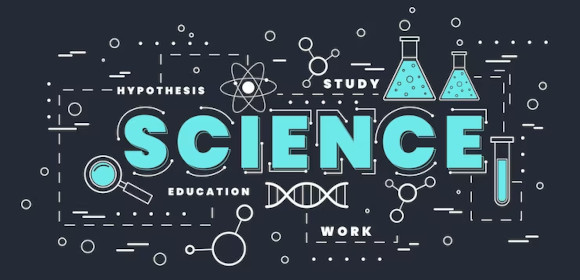33+ Pseudoscience Examples
There are beliefs that are centered around biases, fallacies, and beliefs that can mask themselves through a scientific lens. These said beliefs have little to no proof that will support them.
1. Pseudoscience in Medicine
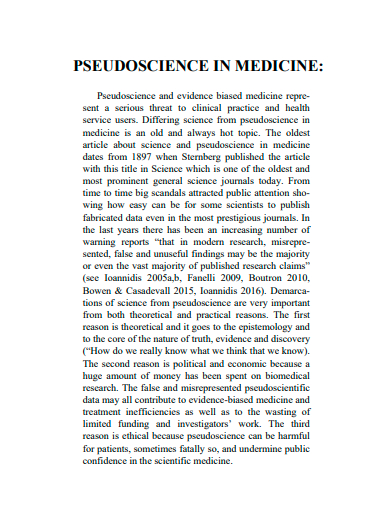
psychiatria-danubina.com
2. Pseudoscience Demarcation Criteria
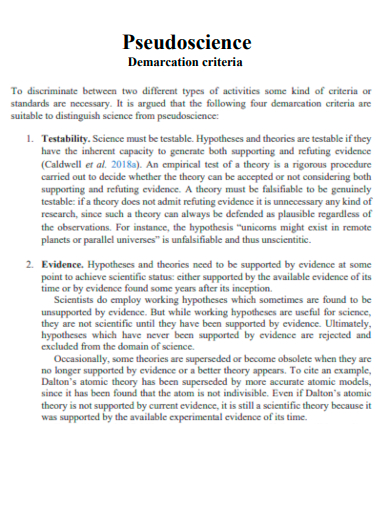
pitt.edu
3. Distinguishing Science from Pseudoscience
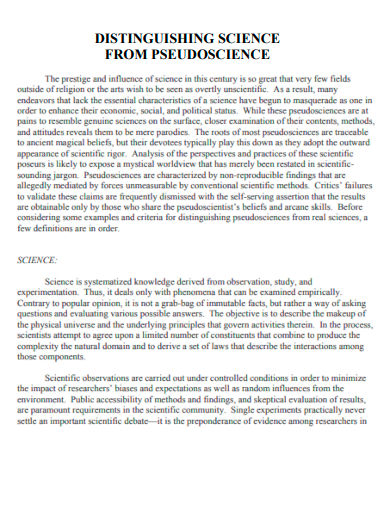
drstaceywood.com
4. Pseudoscience Checklist
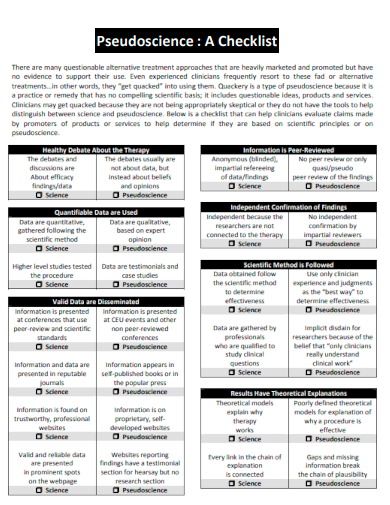
ei.northwestern.edu
5. Student’s Beliefs in Pseudoscience
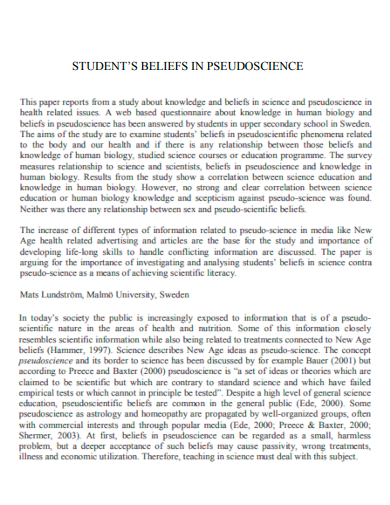
degruyter.com
6. Pseudoscience in Clinical Psychology
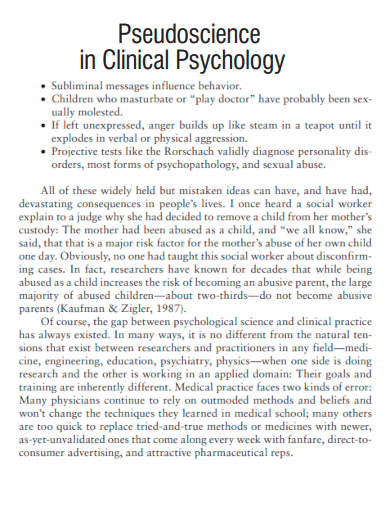
scottlilienfeld.com
7. Pseudoscience in Communication Disorders
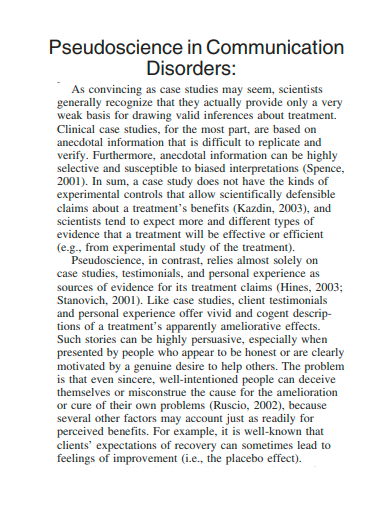
therapy.com
8. Pseudoscience in Adult Nutrition
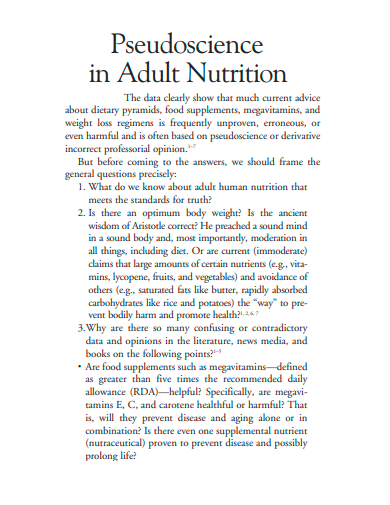
centerforinquiry.org
9. Dangers of Pseudoscience in Security
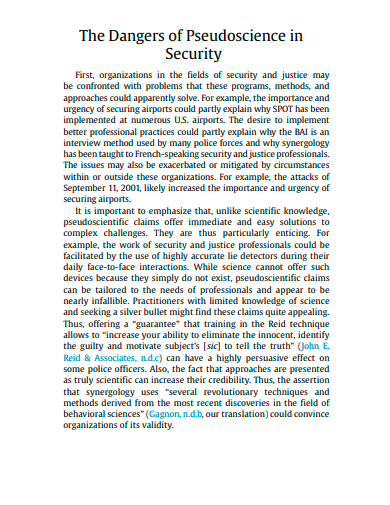
copmadrid.org
10. Pseudoscience in Audio
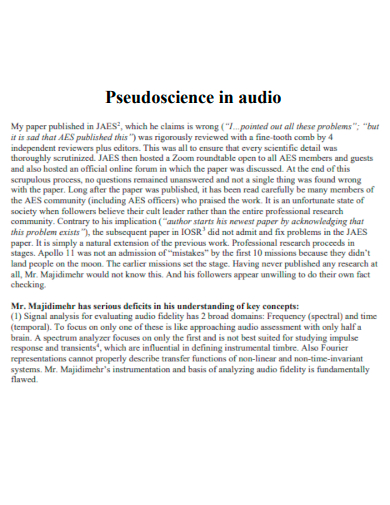
physics.sc.edu
11. Pseudoscience in Schools
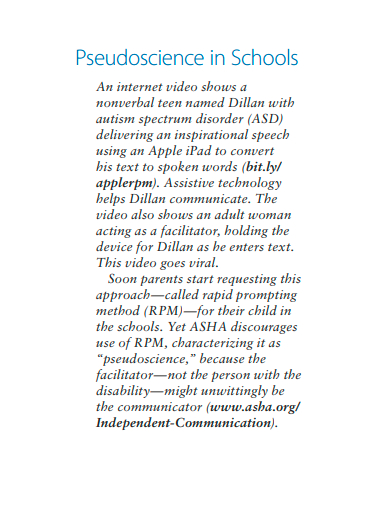
asha.org
12. Pseudoscience In Politics
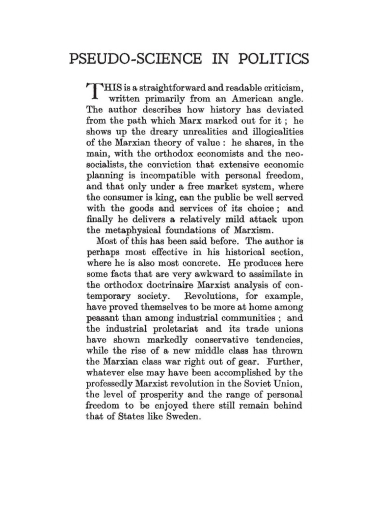
nature.com
13. Pseudoscience and Hydrogeology
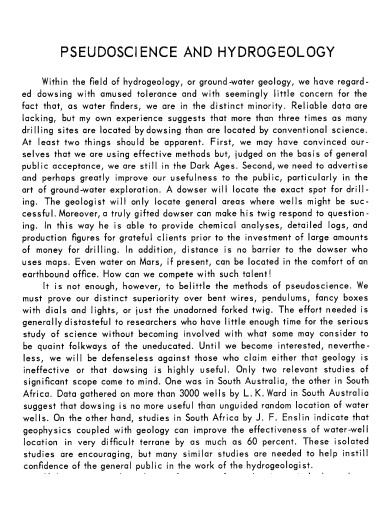
ngwa.com
14. Pseudoscience Cautionary Recommendations
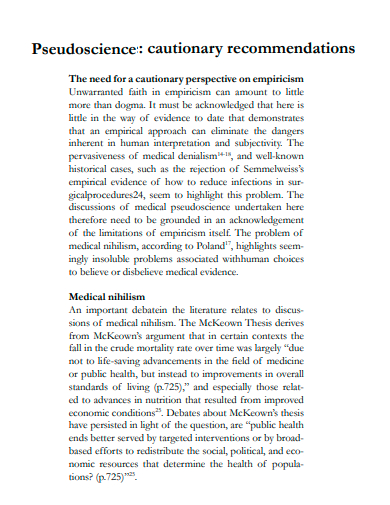
bioline.org.br
15. Pseudoscience in Postmodern Societies
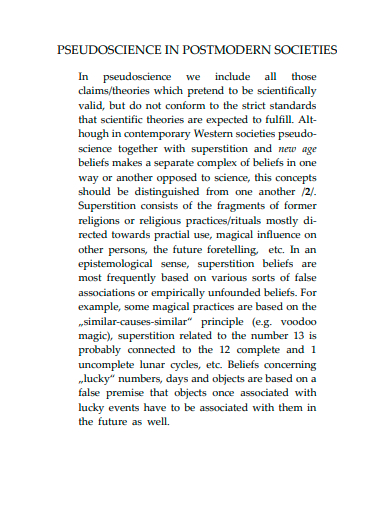
hrcak.srce.hr
16. Pseudoscience Teacher Guide
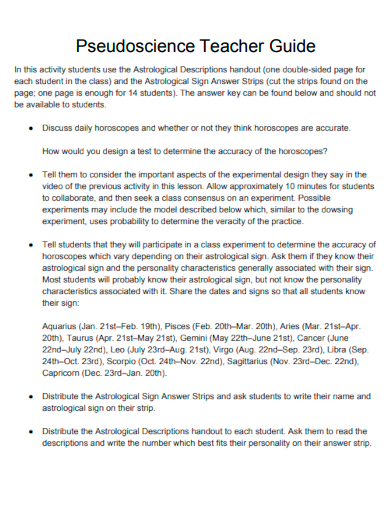
cires.colorado.edu
17. Markers of Pseudoscience
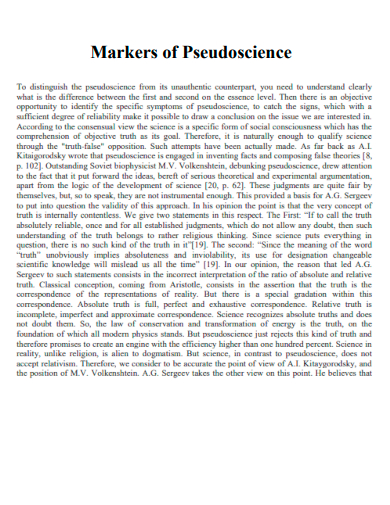
abct.org
18. Health Related Pseudoscientific Beliefs
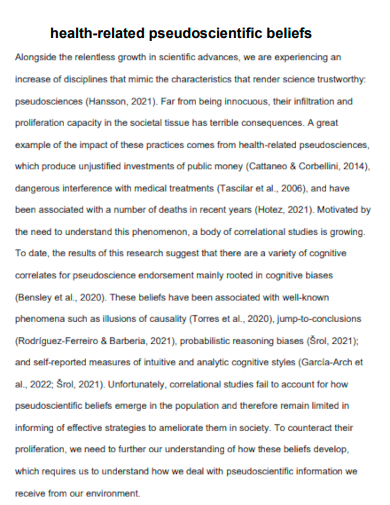
osf.io
19. Pseudoscience From a Family Resemblance
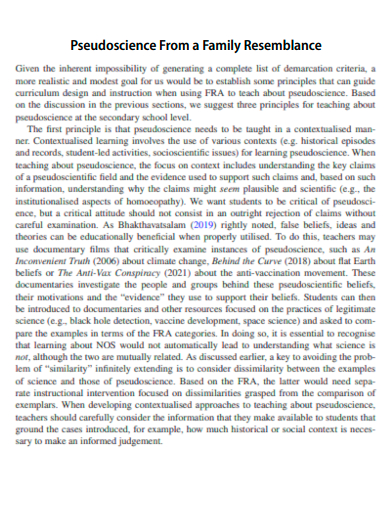
soton.ac.uk
20. Pseudoscience and Antiscience
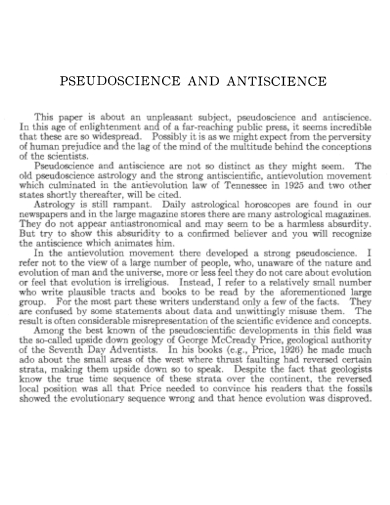
kb.osu.edu
21. Revolt Against Expertise Pseudoscience
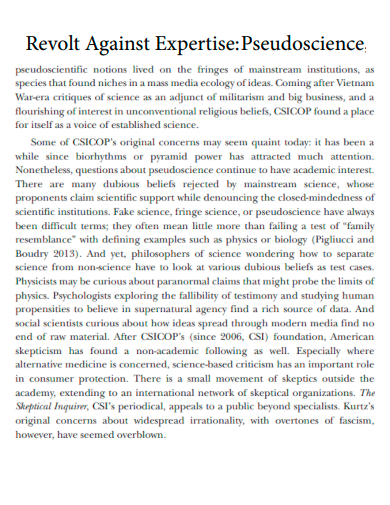
studiahumanitatis.eu
22. Student Pseudoscience
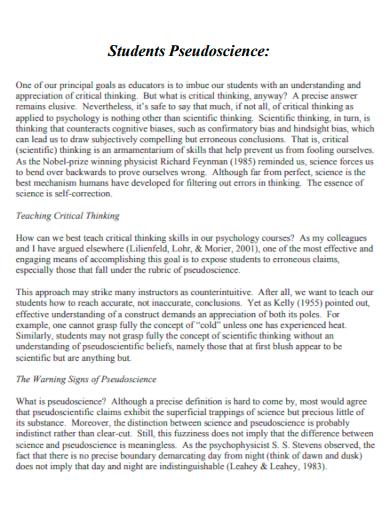
lscp.net
23. Pseudoscience or Bad Popular Science
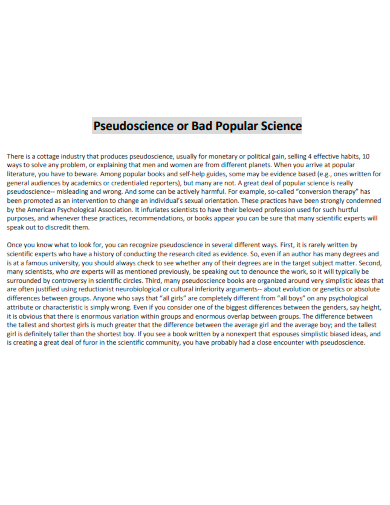
pressbooks.pub
24. Danger of Pseudoscience in Informetrics
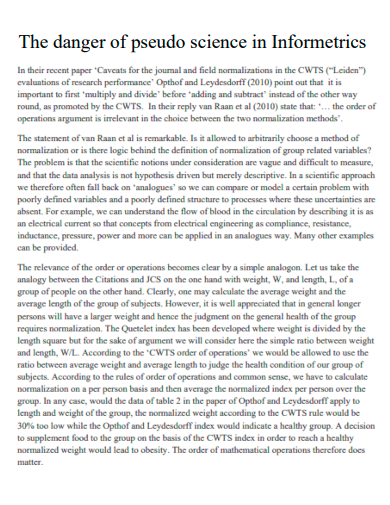
arxiv.org
25. Pseudoscience in Speech Language
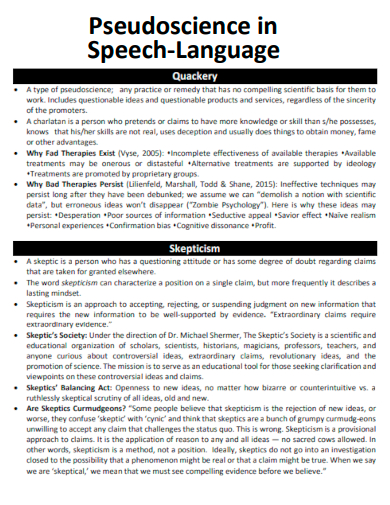
oregonspeechandhearing.org
26. Pseudoscience Course Catalog Description
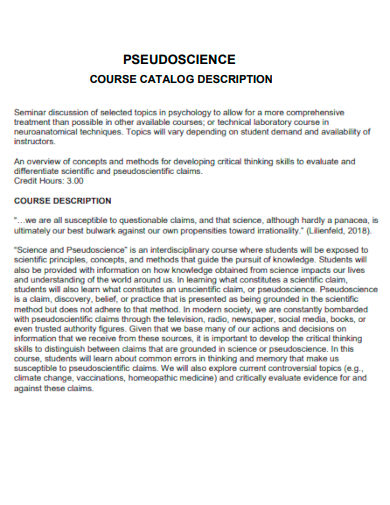
utoledo.edu
27. Forensic Pseudoscience
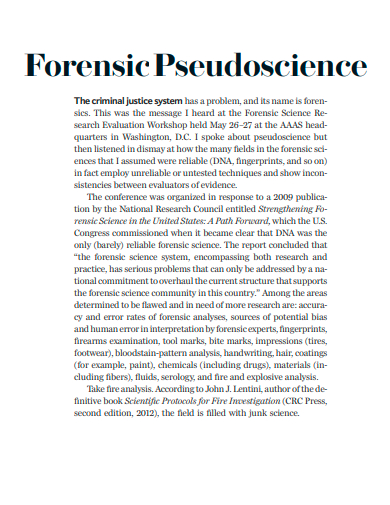
scientificamerican.com
28. Pseudoscience in Psychiatry
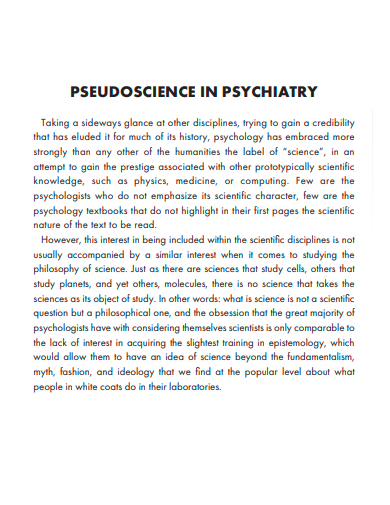
papelesdelpsicologo.es
29. Intelligent Design as a Pseudoscience
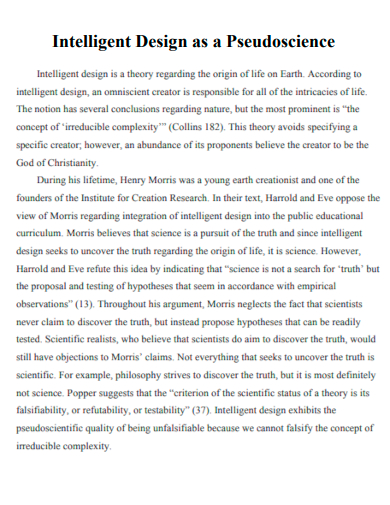
rutgers.edu
30. Fantastic Archaeology and Pseudoscience
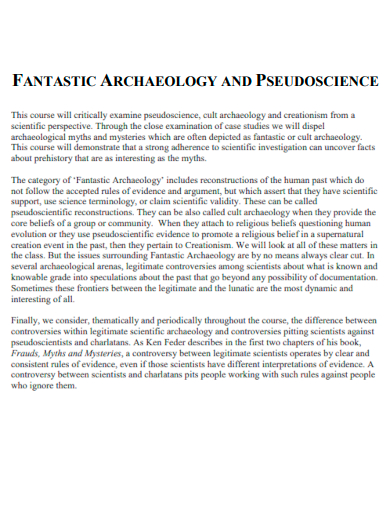
smu.edu
31. Science & Pseudoscience
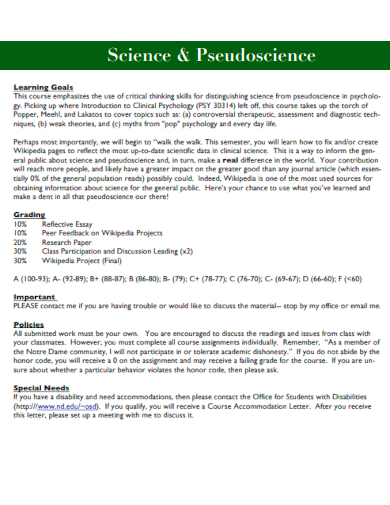
nd.edu
32. Pseudoscience in Biomedicine
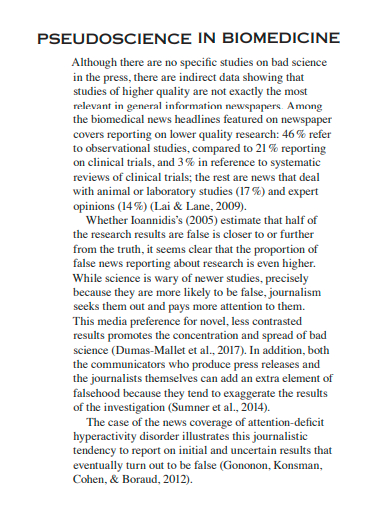
repositori.upf.edu
33. Pseudoscience Wars
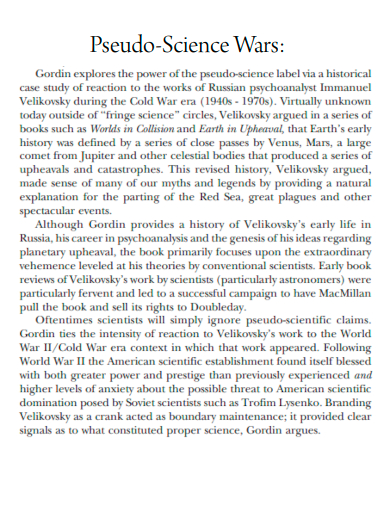
chapman.edu
34. Pseudoscience in Child and Adolescent Psychotherapy
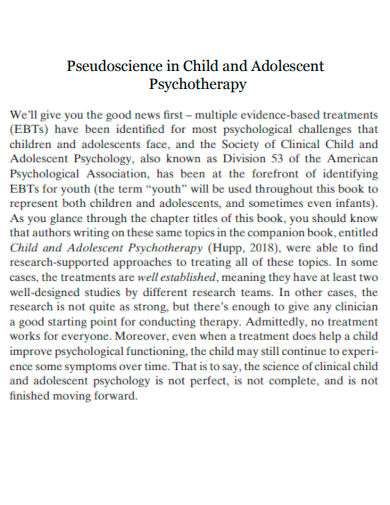
silvereye.com.au
What Is Pseudoscience?
Pseudoscience is a term people use to describe beliefs and thought processes that can be proven false through proper observations, case studies, research, and experiments. Pseudoscience can lead to harmful situations or events, which are wholly dependent on the theme, context, culture, and tone of the situation. Pseudoscience can also cause a person to commit discrimination against people from different ethnicities, ethnic groups, or subcultures.
How to Identify Pseudoscience
Pseudoscience is a line of thinking that can be very misleading and persuasive to the audience due to its scientific approach to the thought process. It is important to know how to identify and distinguish between pseudoscience and scientific articles.
Step 1: Check the Sources of the Line of Thinking
If the thought process or theory you are identifying has sources, you must check the sources and determine if they are credible. Note, that a credible source will present proof and observable evidence to further determine the credibility of the theory.
Step 2: Determine if the Line of Thinking Can be Easily Observed
All theories can be proven or disproven through proper observation and repetition. You must determine if one can replicate the experiment or observation to prove the line of thinking. You must also check and determine if the line of thinking cannot be disproved by simple observation.
Step 3: Check if the Line of Thinking is Aggressive to Challenges or Dogmas
Pseudoscience tends to have a more aggressive stance towards challenges or dogmas in their line of thinking. You must check if the line of reasoning or thinking has an aggressive stance towards people or challenges that question it.
Step 4: Identify the Purpose of the Line of Thinking or Scientific Thought
Usually pseudoscience back up a specific agenda that it wants to push or support. If you feel like a specific line of thinking backs up a specific agenda, you will need to identify and check the line of thinking or scientific thought.
FAQs
Pseudoscience is a line of thinking or a thought process that posits a specific theory or line of thinking from a scientific angle or way, which has no proof or is proven false to further a specific agenda or ideal. Faith is a line of thinking or thought process that uses belief in a higher being or entity to explain specific phenomena and origins.Pseudoscience vs. faith; what is the difference between these two lines of thinking?
Science is a line of thinking that uses the scientific method to posit and prove specific theories about phenomena and nature. Pseudoscience is a line of thinking that tries to posit ideas in a scientific way without the use of proof or through the usage of falsification.Science vs. pseudoscience; what is the difference between these two lines of thinking?
Pseudoscience is a line of thinking that tries to promote a specific ideal, agenda, service, or product. More often than not, nefarious people use pseudoscience to try and promote and advertise specific things to other people.What is the point of pseudoscience?
Pseudoscience is a specific brand or category of theories that posit ideas or explanations for a specific thing without using any underlying scientific proof or variables. It is important to know how to identify and distinguish pseudoscience from valid lines of thinking.


